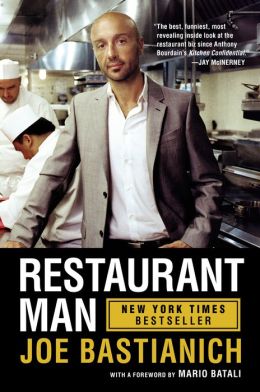Surviving is All About Restaurant Mathematics
The SacBee’s Chris Macias wrote a column early in January summarizing highlights of the dining scene during 2013, but he also included the lowlight of nearly three dozen restaurant closings across the Sacramento region. Within a matter of weeks, two more highly touted and much publicized restaurants would join the likes of Blackbird and Sammy Hagar (funded with $1.5 million from the city of Roseville) in biting the dust: Enotria and Thir13en.
Both of the most recent fatalities were drowning in press coverage with wunderkind chefs in the kitchens who are/were the darlings of local critics. Less than two years ago, Enotria went through a $1.8 million renovation and built large, expensive staffs in both the kitchen and the front of the house. Thir13en’s chef made it through to the late rounds of a reality television series, and he continues to operate another restaurant in Sacramento.
What both operations came up short on was something essential to staying in business: profitability.
I’ve thought a lot about the subject of surviving in this business—one that is ultra competitive, surrenders the skinniest of margins and has scant tolerance for mistakes. At Carpe Vino, we’ve always operated our restaurant as a business first, not as an outlet for a personal “vision” of haute cuisine, nor a quest for a Michelin star.
This reality was driven home for me during a recent visit to Chicago when I spent a couple of hours at Eataly, a two-story, restaurant and retail Mecca of all things Italian, created by celebrity chef Mario Batali, Joe Bastianich and a group of partners (including the person who pioneered the concept in Italy). Eataly was launched in New York, and the store there grossed $80 million in its first year of operation. Amazing.
Bastianich and Batali are also partners in 25 restaurants around the world, and I picked up Joe’s 2012 book titled, Restaurant Man, on my visit to Eataly. He recounts his wild ride in the business as well as insight into how he operates his restaurants. I plowed through the book quickly, and was rewarded with his insights on why restaurants succeed or fail:
“As long as you are committed to a restaurant and to keeping it fresh and vibrant, as long as you know what you are doing and are watching the margins, you should be able to continue” he explained. “Exceed expectations and people will always come back. . .You need to announce that you’re in it for the long run, and you do that by leaning on value, quality and the overall experience. People will get the message you are not a flash in the pan.”
He explained, “In the long term, what keeps restaurants viable is just consistency. That’s what people want. . .They want to bring friends and show their friends how smart they are because they found this great place.”
The fast track to failure: “Successful restaurants don’t close themselves; it takes a push, like bad decisions, trend chasing or willful indifference of the owner.” He added, “The graveyard is filled with the hottest restaurants in town.”
A dozen years ago in February we started rehabbing what is now the bar for Carpe Vino. The restaurant will be eight years old in April. We’ve flourished in this business and stayed in business because we’ve grown incrementally and paid for everything along the way. We didn’t take on massive debt; we’ve paid as we went along a track of reasonable growth. . .especially during very difficult times.
And we’re a poster child of consistency that would make Mr. Bastianich proud. Our chef, Eric Alexander, has been leading the kitchen since we opened the restaurant in 2006. Our restaurant manager, Ada Campos, has been with us for six years and Paul Roosen has served in the dining room since Day One. And, of course, Drew and I have been trying to hang on to the reigns tightly during 12 years of this frenetic life.
What never changes is the combination of excellence and creativity in the kitchen, a keenly professional service staff, the singular space in Old Town in which we operate and consistently delivering value. Of course we fail occasionally as some visitors have gleefully described in Yelp barbs.
Mr. Bastianich’s advice and observations can actually apply to any business; they are universal covenants, especially his exhortation that to succeed, you either grow or die. That’s been our mantra at Carpe Vino, illustrated in the fabulous growth of our Wine Club and major strides in wine and restaurant revenues.
For 2014, we’re planning on more growth: we’ll be opening up on Monday nights soon with a very exciting, one-night-only menu that we think will fill the joint. And, we’re creating a program to take one of our strongest restaurant skills to the retail market. More about both soon. . .you’ll be the first to know!
